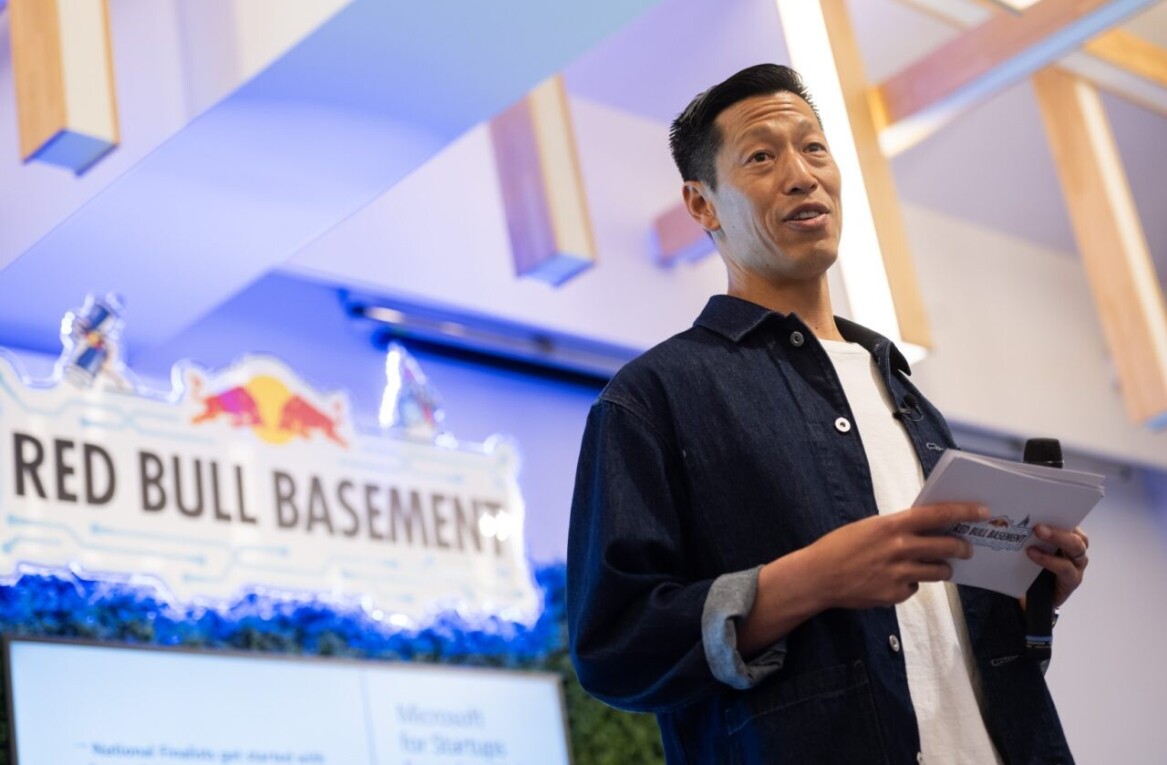
There’s a Dutch saying that goes ‘Op een roze wolk zitten’. Or in English, ‘to sit on a pink cloud.’
It’s used to describe someone who’s euphoric. Nobody’s actually perching on a wad of candyfloss-colored cumulus.
Starting your first company feels like riding the pink cloud. Anticipation, mixed with fear, loaded with excitement and possibility.
According to Techleap’s Thinking Bigger report, Dutch people place more value on starting a company than successfully growing one. The Netherlands is the only country where we see this trend – places like Germany, Switzerland, and the UK rank growing a business above starting one, which might explain their thriving scale-up ecosystems.
So how do we create a culture that encourages founders to successfully start and sustain their businesses long-term?
Let’s ask some serial entrepreneurs.
If it ain’t broke, don’t fix it
When you’ve built as many businesses as Hans Osnabrugge, you need a reason for doing it.
His latest venture, Talk360, is enabling wifi-less communications across Africa. But between the years of 2010 and 2016, Hans’ first company Brooklyn Ventures churned out 10 different startups. It was during this time Hans realized something was missing.
A few of those businesses lacked real purpose. They just existed to make money. There was nothing I could explain to my kids back home. It’s easier to be resilient and deal with setbacks when you have purpose, because you have a vision for the future.
The definition of purpose changes from founder to founder. For Camiel Kraan, founder of Convious (a SaaS platform that helps B2B businesses optimize their customer experiences), the only thing his six businesses have in common is that they’re internet-based solutions.
My approach to business isn’t vertical. I’m very purpose-driven. I’m more focused on my entrepreneurial thesis — I see something I think is broken, and I try to fix it — than a specific niche.
Friends with entrepreneurial benefits
Teams that get along do better work. That doesn’t mean a team full of your mates will be a resounding success.
Dare to hire, but dare to fire too. That’s the message from Itai Gross, who had a highly successful career with Unilever, before building his home and living outlet NADUVI:
Knowing what I know now, I would have taken a different approach to hiring. I would have dared to hire different kinds of people, but also let go of certain people too.
It’s a sentiment echoed by Camiel:
The biggest mistake I made was to build my first company with people that I liked, and not people that were complementary to one another. I was six months in before I realized everyone I hired liked doing one thing, and it was the same thing.
That’s not to say you shouldn’t hire people you like. But you also need to look at whether these people can work together as a team.
Be careful with the pot of gold
All startups need money, but that sweet, sweet moo-lah can come at a cost.
Hans recommends giving the old bootstrapping technique a whirl. As he explains, it’s better to feel out of pocket than out of sorts:
I remember the first time someone invested in one of my companies. I was immediately dependent on them from day one. It was a total mindfuck because my attention was focused on paying them back, not the business itself.
And once you’re ready to spend someone else’s money, don’t do it all in one go. Hans has a sweet little analogy for poor money management. He calls it the salami technique:
One of my companies, the predecessor to Talk360, had around 18-20 rounds of funding in three years. We’d get a little slice of funding and spend it all. Then the next round of funding would hit, and we’d spend part of that paying off the debt from our last investment. It was a total nightmare.
His recommendation?
Make sure you’ve got at least 18-24 months of runway so you can focus on business, instead of paying off debt.
Timing, because let’s face it, timing is everything
Jan Vesseur was talking about telehealth before the words ‘unprecedented’ and ‘pandemic’ dominated the conversation. His current venture, Solarge, builds flexible polymer solar panels. But back in the day, Jan and four colleagues founded a healthcare startup.
Unfortunately, this was in 2007. Investors and customers turned their backs a year later, during the global market crash.
“We were too early,” Jan explained.
You can have the best idea and a great team behind you, but timing really is critical. To have it spot on, that’s everything.
That’s not to say good timing should be at the sacrifice of decision-making. The Netherlands has a remarkably low fear of failure (lower for men than women), but that doesn’t mean it’s non-existent. Jan has a gentle reminder for entrepreneurial newbies stuck in decision paralysis:
It’s better to decide based on 95% than to wait for 99.9%, because you’re never going to get there. There’s always a reason not to do it.
From the outside, traditional employment looks more secure than entrepreneurship. As Itai points out, that’s not always true:
“There’s nothing to say more established businesses won’t fire people. And just look at the impact of COVID on hospitality; it came to a complete standstill. That sense of certainty people are looking for doesn’t really exist anymore.”
Find the fun (cringe)
Is there anything worse than a listicle that ends with ‘…And lastly, have fun!’?
Yes. Running a company that doesn’t energize you.
According to Hans, losing your sense of fun can be doomsday for business:
The entrepreneurs that don’t succeed are the ones purely focusing on execution. They get trapped in the daily grind. You have to find fun in what you’re doing, you need to be excited by what you’re doing. That’s what motivates you.
This is echoed by Camiel, a self-confessed ‘late bloomer’ in the startup world. The percentage of people working in entrepreneurial fields declines with age, but growth ambition remains consistent through all age groups. Camiel cites fun as the thing that keeps entrepreneurs hooked.
If you let it become just another job, you’ll fail. The amount of time and energy that goes into a project like this will never be paid back. Take fun out of the equation, and there’s no point doing it.
According to Camiel, there are still benefits to being a fresh-faced founder:
New founders are called naive. But when you start a company that’s exactly what you should be. People love to tell you all the downsides. But if we listened to everyone who ever told us ‘that’s not possible’, we wouldn’t have any entrepreneurs.
The Dutch startup ecosystem still has some maturing to do. Startups spring up like tulips, but scaleups are few and far between. There’s one thing first time founders need to know: it gets easier. According to TechLeap’s report, once founders have experience under their belt, the percentage of entrepreneurs who believe they can build a startup doubled for men, and tripled for women.
All you need to do is start.
Get the TNW newsletter
Get the most important tech news in your inbox each week.






